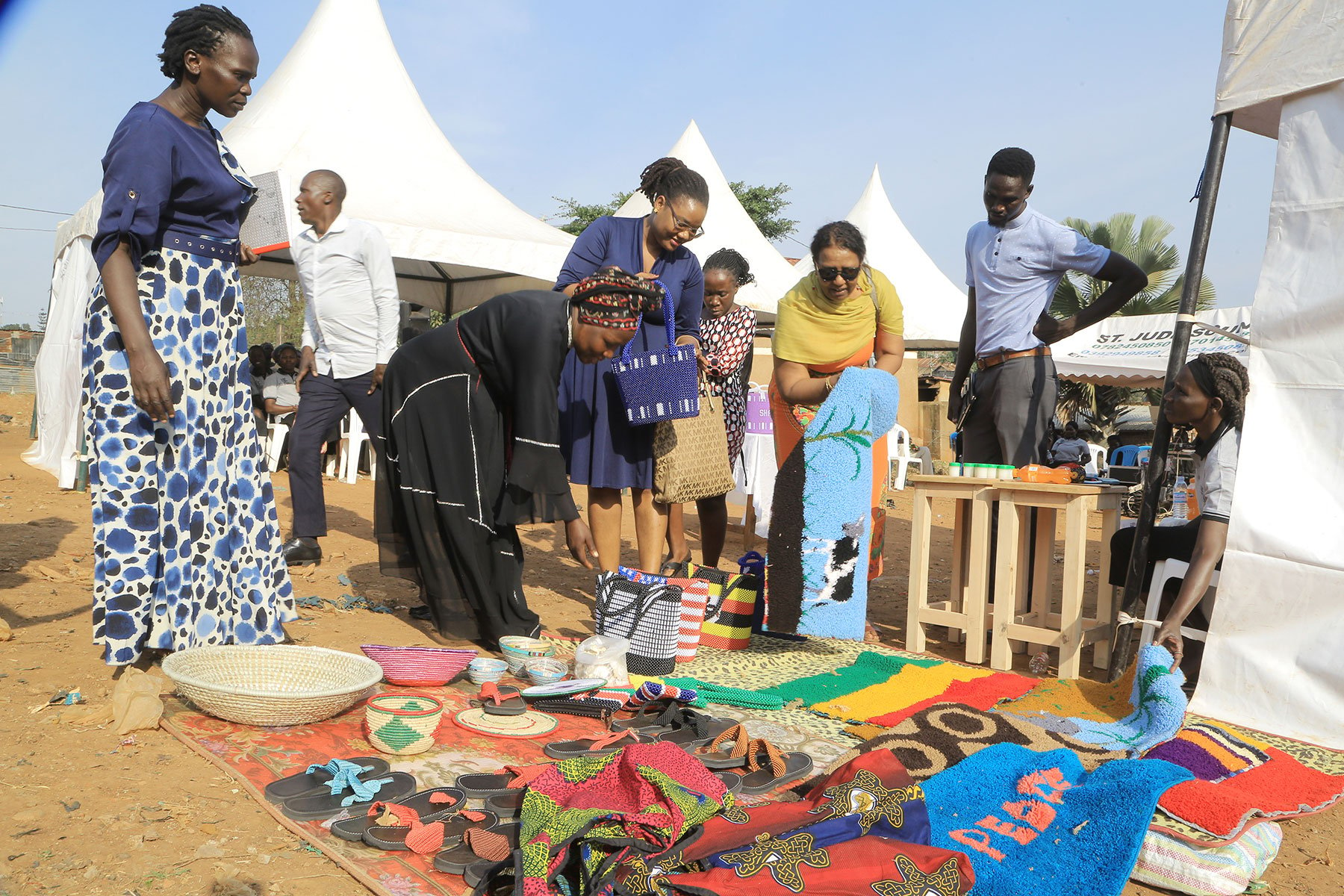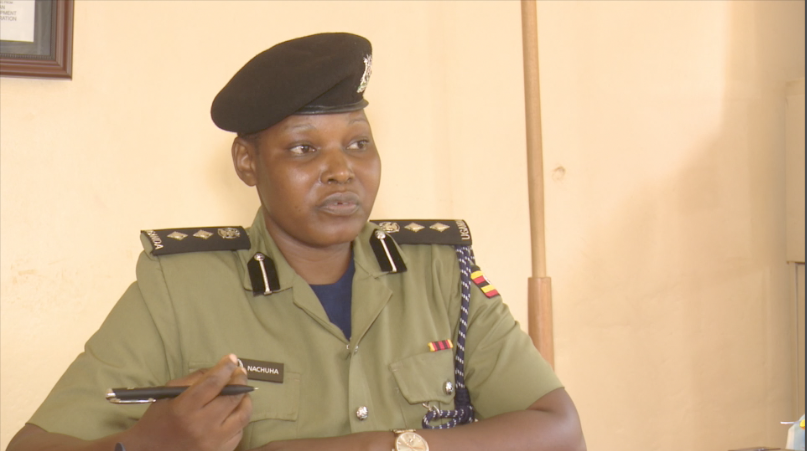Prime
Naguru fruit vendors launch own crafts shoes, bags making centre

A woman from Naguru Market Women Street Vendors Cooperatives showcasing some of her products to the guests
What you need to know:
- Grace Apiyo, 32, says she came to Kampala last year to stay with his husband who is a security officer and their three children. She is making bags
- Florence Achilo who also started by selling fruits but now has a stall at Nakawa market and is also the area councilor.
A section of women in Naguru, a Kampala suburb have launched their own Shoes and Craft Making Community Training Centre.
Majority of these women say they have transformed from vending fruits like mangoes, oranges on the street to this hands-on business which they hope will transform their lives.
These are operating under the umbrella of the Naguru Market Women Street Vendors Cooperatives, where they are making savings by borrowing from each other at a low interest rate as they develop.
Grace Apiyo, 32, says she came to Kampala last year to stay with his husband who is a security officer and their three children. She is making bags.
“Life was not easy because my husband could not provide for us promptly which forced me to join the fruits vending business but due to challenges I decided to join craft making,” she said.
Irene Achiro from Gulu said that she came to Kampala in 2015 where she started working as a housemaid to an Indian citizen who left Uganda in 2020 following the outbreak of covid-19.
“I used the small capital I had saved to start the fruits vending business but the Kampala Capital City Authority confiscated all my properties making me go back to zero. I leant about this group and came and borrowed Shs100, 000 which helped me buy materials to start making these craft shoes,” she said.
Florence Achilo who also started by selling fruits but now has a stall at Nakawa market and is also the area councilor.
“Since I have the tailoring skills, I bought a sewing machine which has increased my funding," she said.
The group chairperson Ms Lilian Ayenyo said that they started as a group of 50 members saving Shs5, 000 each but have since increased to 100 members.
“On our way, we were helped by different organization like the Strategic Initiative for Women in the Horn of Africa (SIHA) which gave us funding that has enabled us buy these machines that will help us make shoes and bags easily,”
Among the machines they bought are modernized sewing machines used for both clothes and shoe making, machines used in shoe leveling among others.

One of the members using a shoe and bag crafts making machine
SIHA is a network of civil society organizations from Sudan, South Sudan, Somalia, Somali-land, Ethiopia, Eritrea, Djibouti and Uganda, which was established in 1995 by a coalition of women’s rights activists with the aim of strengthening learning within civil society organizations that address and challenge women’s subordination and violence against women and girls in the Horn of Africa.
Sandra Nassali Regional Advocacy and Communications Coordinator SIHA Network said that their aim is to ensure that grassroot communities are uplifted.
“We call on the Government of Uganda to recognize the contributions of women market and street vendors to the formal economy. In addition, the government should ensure their access to development funds such as UWEP, loans or credit at favorable interest rates, and tax relief - all crucial for their businesses to thrive and their equitable access to social protection services such as sexual and reproductive services, adult education and skillings as well as retirement benefits,” she said.
Mr Jimmy Dheyongera the LC III of Naguru II of, praised the resilience of the WMSVs, emphasizing that for a country to thrive, vocational skills like shoe making and knitting are crucial.
The women advocated for better access to development initiatives such as UWEP, loans or credit at favorable interest rates, and tax relief - all crucial for their businesses to thrive and for equitable access to social protection services.
“With registration, training, and materials costing just Shs50, 000 per three months at the Centre, we invite all community members around Naguru and its outskirts to take advantage of this opportunity,” Ms Ayenyo said.
[email protected]




